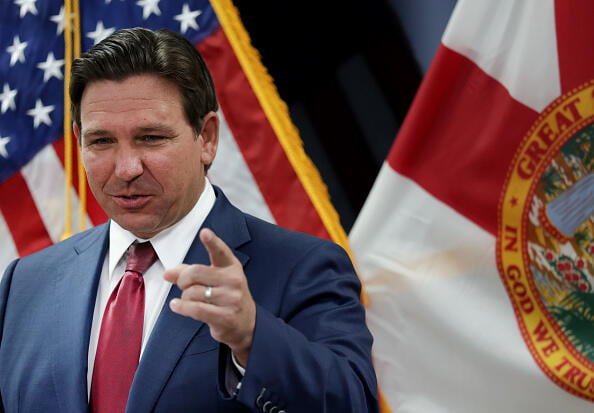
Despite Reservations, Florida BOG Approves New Accreditor
Plans for a new accreditor, announced by Florida governor Ron DeSantis in June, are becoming a reality.
The Florida Board of Governors voted Friday afternoon to create a controversial new accrediting agency, in coordination with five other state university systems. The decision came after about an hour of heated discussion between board members and the State University System of Florida’s chancellor regarding details of the plan.
Chancellor Raymond Rodriguez argued that the new accreditor, called the Commission for Public Higher Education, would eliminate the bureaucracy that comes with existing accrediting agencies and focus specifically on the needs of public universities.
“The Commission for Public Higher Education will offer an accreditation model that prioritizes academic excellence and student success while removing ideological bias and unnecessary financial burdens,” he said. “Through the CPHE, public colleges and universities across the country will have access to an accreditation process that is focused on quality, rooted in accountability and committed to continuous improvement.”
But before voting in favor of the motion, board members repeatedly pushed back, arguing that the plans for starting an accreditor from scratch were half-baked. They raised a litany of questions about how the CPHE would work in practice.
Some wanted to hash out the details of the would-be accreditor’s governance structure before voting. According to the CPHE business plan, the Florida governing board would incorporate the accreditor as a nonprofit in Florida and serve as its initial sole member, using a $4 million appropriation from the Florida Legislature for start-up costs. (Other systems are expected to put in similar amounts.) A board of directors, appointed by all the university systems, would be responsible for accrediting decisions and policies.
But multiple BOG members worried that the roles of the governing board and board of directors were not clearly delineated.
“With us as the sole member, it appears, or could appear, to stakeholders that the accreditor lacks independence from the institution being accredited,” said board member Kimberly Dunn.
Alan Levine, vice chair of the Board of Governors, called for a clear “proverbial corporate veil” between the two in corporate documents.
“Our role is not to govern or direct the activities of this body,” Levine said of CPHE. “It has to be independent or it won’t even be approvable by the Department of Education.”
Board member Ken Jones pressed for greater detail on the governing board’s “fiduciary or governance obligation to this new entity.”
“I’m in support of this … I really believe this is the right path,” he said. “I just want to be sure that we all go in, eyes wide-open, understanding what is our responsibility as a BOG? … We’re breaking new ground here, and we’re doing it for the right reasons. But I want to be sure that when the questions come—and I’m sure they certainly will—that we’ve got the right answers.”
Members asked questions about the accreditor’s future cybersecurity and IT infrastructure, as well as its associated costs. Some asked whether accreditors have direct access to universities’ data systems and raised concerns about potential hacking and the board’s liability; they were given reassurance that colleges themselves report their data. Some board members also asked for budget projections of what CPHE would cost.
“I have an internal, unofficial estimation around the funds and revenues, but nothing I’d be prepared and comfortable to put forward publicly,” said Rachel Kamoutsas, the system’s chief of staff and corporate secretary, who fielded questions about the initiative.
The answers didn’t seem to fully satisfy the governing board.
“I do think the chancellor and team have a lot of work to do to continue to educate this board, to be blunt,” said BOG chair Brian Lamb, “because a lot of the questions that we’re asking—forecast, IT, infrastructure, staffing—every last one of those are appropriate.”
He emphasized to other board members, however, that voting in favor of the motion would jump-start the process of incorporating the new accreditor and provide seed money for it. But, he added, “not a penny is going anywhere until we have an agreed-upon document on how this money will be spent.”
Accreditation expert Paul Gaston III, an emeritus trustees professor at Kent State University, raised similar questions in an interview with Inside Higher Ed.
“The credibility of accreditation really is directly related to whether the public can accept it is an authoritative source of objective evaluation that is in the public interest,” he said. “And the question that I would ask as a member of the public is, how will an accreditor that is created by and that is answerable to the institutions being evaluated achieve that credibility?”
Despite all the pushback, the BOG ultimately voted unanimously to approve the measure. Now CPHE can file for incorporation, establish its Board of Directors and set out on the multiyear process of securing recognition from the Department of Education.
Source link



